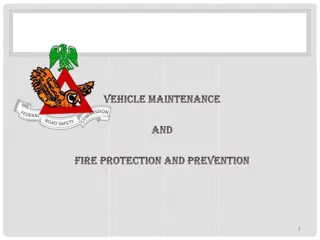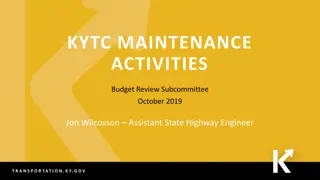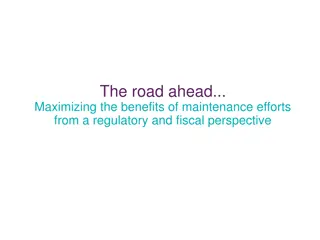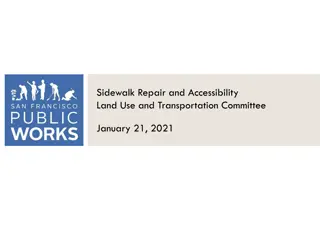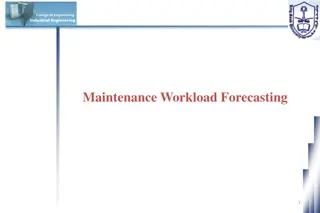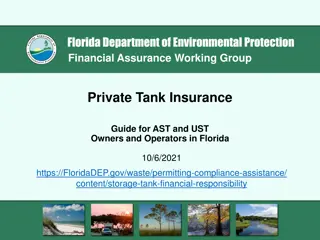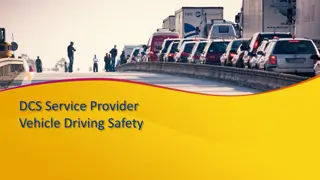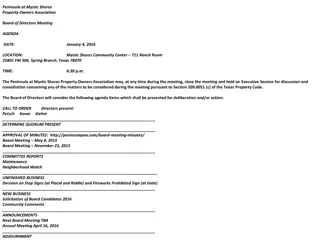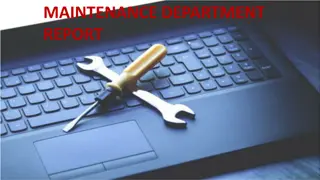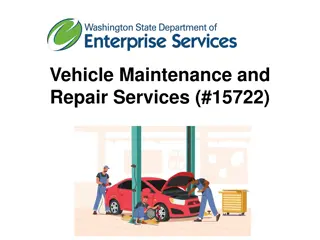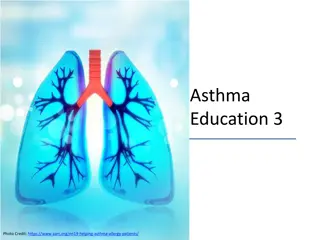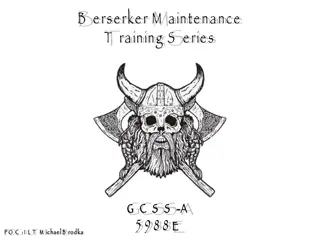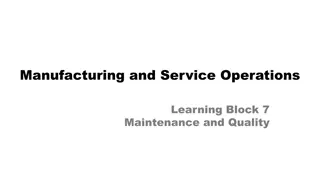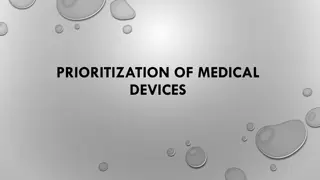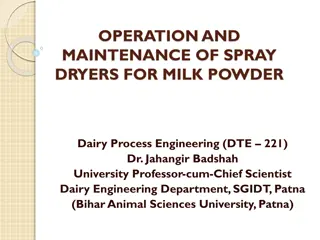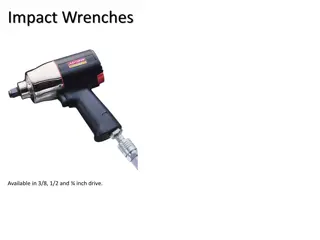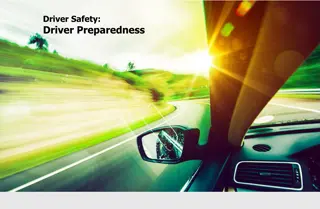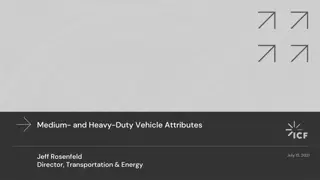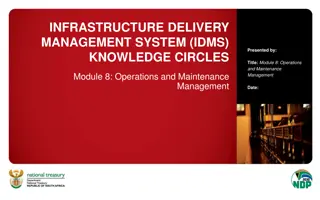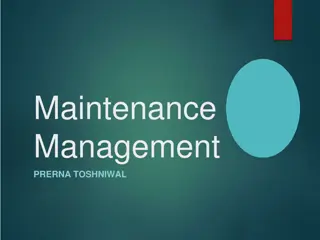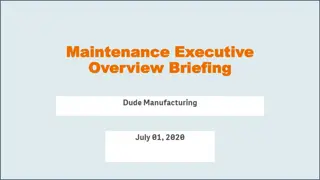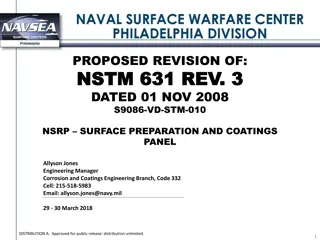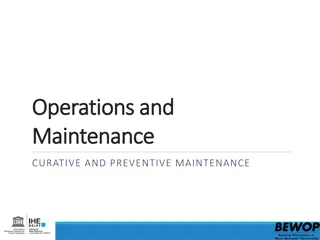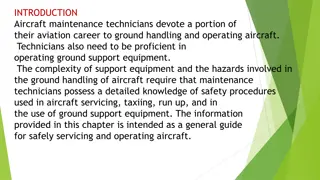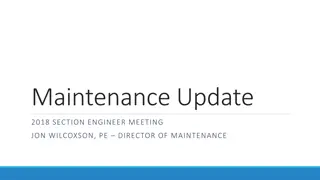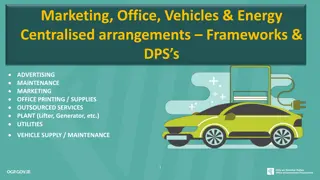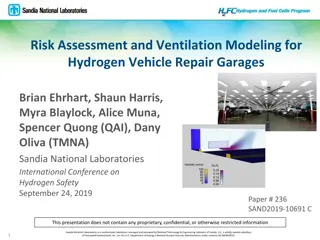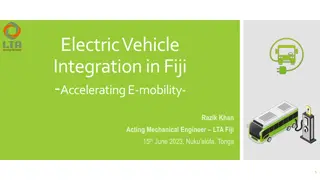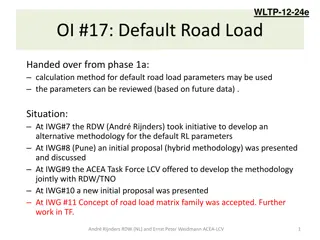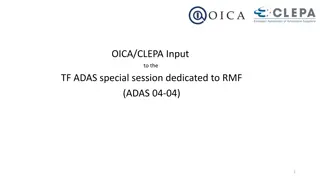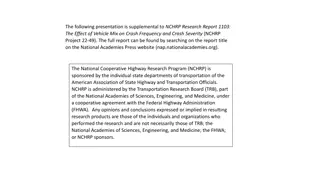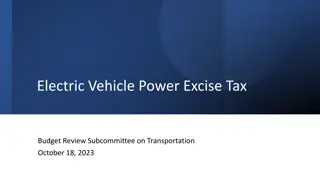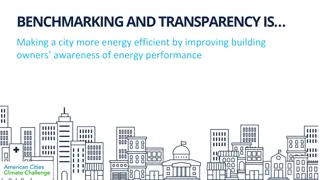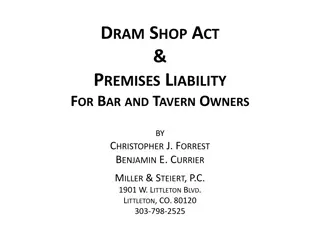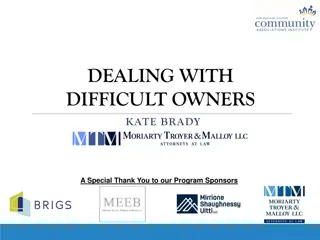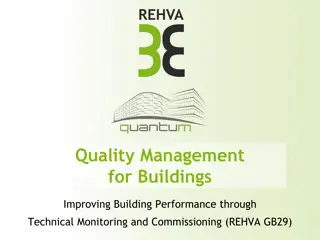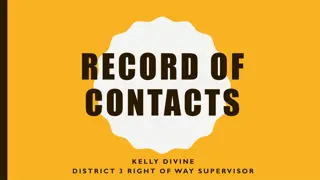Essential Maintenance Tips for Vehicle Owners
As a vehicle owner, it is crucial to stay on top of preventive and regular maintenance tasks to ensure the longevity and efficiency of your car. Tasks include checking lights, tire pressure, fluid levels, belts, and more. Regular inspections can help you avoid costly repairs and keep your vehicle running smoothly.
Download Presentation

Please find below an Image/Link to download the presentation.
The content on the website is provided AS IS for your information and personal use only. It may not be sold, licensed, or shared on other websites without obtaining consent from the author. Download presentation by click this link. If you encounter any issues during the download, it is possible that the publisher has removed the file from their server.
E N D
Presentation Transcript
A College Student's Guide to Owning a Car
WKU SLEC is located at 401 College Heights Blvd. in Cherry Hall, Room 321. Contact us at: 270-745-4668 or wkusls@wku.edu The information herein is not intended as a substitute for legal advice. If you have a specific question you are encouraged to seek assistance from a licensed attorney at student legal services.
What should I do as a Vehicle Owner? Under KRS 186 a vehicle must have registration and insurance. Always keep these in your glove box. If your car came with a warranty, familiarize yourself with what is covered and what is not covered. Keep it in the glove box. Read the car owner s manual. It will tell you everything about your car, including what grade of gasoline you should purchase. Keep this in your glove box. Preventive and regular maintenance is probably one of the biggest ways you can save money not actively, but in the long term. Spending a little money now on these basics will save you from more costly repairs later. Keep track of all your service records.
What is Preventative and Regular Maintenance for My Car? Inspect your vehicle once a month, minimum. Make sure all your lights are working properly.Check your tire pressure every month. Most gas stations have a free pressure gauge you can use to check, or you can purchase a cheap one. Having the right air pressure in your tires can help you get better mileage and optimize fuel efficiency. Make sure your tires have enough tread. If they become worn down, they can cause you to wreck especially during wet weather. Check your fluid levels so when they get low you can get them serviced. These include power steering, antifreeze, coolant, and wiper fluid. Most of these have dipsticks that you can pull out and the right level will be indicated by a notch on the stick. Inspect the timing and serpentine belts on your car. If they are worn out, get them replaced. If they fail, they can cause more costly damages to your car.
Preventative and Regular Maintenace Cont. Check your oil and get it changed regularly. Generally, you should change your oil every 3,000 miles or every 3 months, whichever comes first. Consult your owner s manual for the specific type of oil your car needs. Check your battery for leaks or buildup. You should keep a battery cleaning brush in your trunk. You should also purchase a battery tester and jumper cables. If your car battery dies while you are on campus, call the WKU non-emergency line. They can send an officer to jump your vehicle. Replace your windshield wipers when they begin to produce excessive streaks, this means they are worn down.
Preventative and RegularMaintenaceCont. Get your tires rotated and balanced, and your alignment checked. It is important that your tires wear evenly to help your tires last longer. Change your spark plugs. Most spark plugs have a 30,000 mile life. Replace your cabin air and engine air filters.
What do I do if there is now a light on my dash? Refer to the owner's manual to see what the light that is now on means. If it is a check engine or maintenance required light, visit an auto repair shop such as AutoZone. They have a tool that plugs into your car and tells you what code the car is sending to cause the light to now be on. This will pinpoint the issue and allow you to figure out what you will need to do to repair the issue. Many auto shops offer this service for free.
24/7 Roadside Assistance AAA: www.aaa.com/ Consider becoming a AAA member if you do not have family nearby. They will be able to provide roadside assistance quickly. Additional Resources Check your vehicle s accident, owner, and service history: www.carfax.com Warren County Registration and Tags: (270) 842-9416 WKU non-emergency line:270-745-2548


